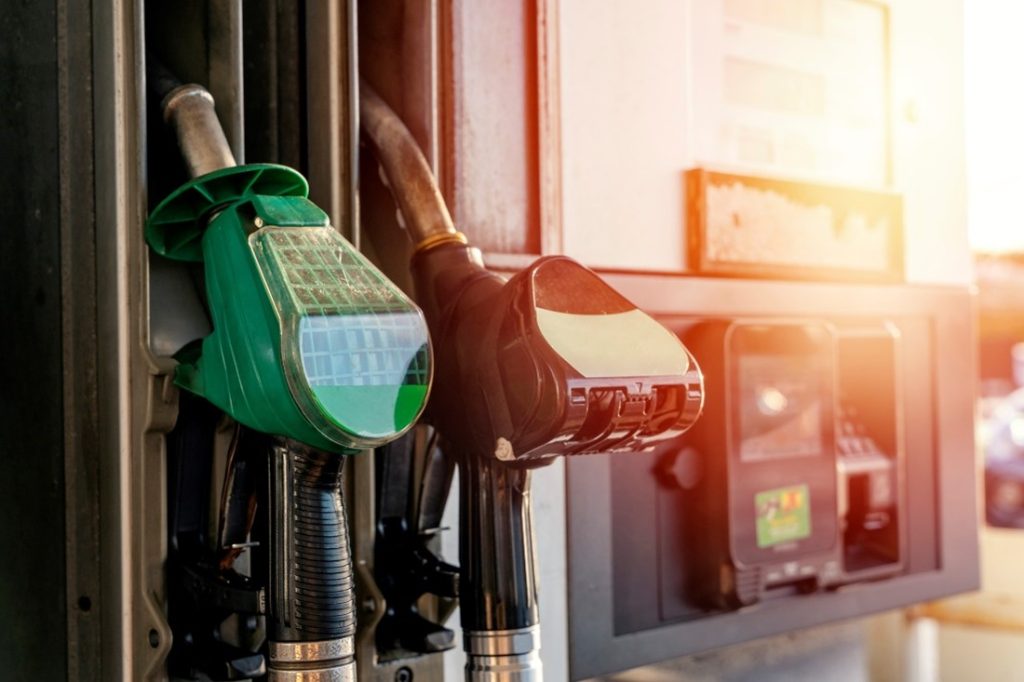The Advantages and Disadvantages of Fuel Cards
Any business running a vehicle fleet knows how crucial efficient fuel usage is. With the rising fuel prices, the demand for efficiency is more present than ever. We appreciate that fleet operators are faced with many choices when it comes to managing their fuel resources.
Fueltek prides itself on providing the best fuel management systems and outstanding customer service. In this blog, we will explore the advantages and disadvantages of fuel cards and how using an onsite fuel management system brings your business more benefits.

What Are Fuel Cards?
Fuel cards are remarkably like credit cards, but instead of being for personal use, they are used to purchase fuel from the roadside or commercial petrol stations. If your business operates a fleet of heavy vehicles, such as HGVs, using a fuel card removes the need to issue a company credit card to each driver.
There are many things to consider with fuel cards, which is why we have outlined the disadvantages and advantages of fuel cards.
Why Do Some Businesses Use Them?
Businesses use fuel cards for various reasons, ranging from ease of use to improved fuel efficiency. Here are some of the most common reasons for businesses using a fuel card:
- Easy to use
- Discounts and rewards
- Improved fuel management
- Increased security
Disadvantages of Fuel Cards
As we have looked at why businesses choose to use fuel cards, we will now look at the disadvantages of using them.
Potential for Misuse
Fuel cards are prone to fraud since they can be misplaced or stolen, allowing unauthorised purchases. Companies must have strict measures to avoid fraud and monitor fuel card usage. Establishing clear standards and regulations to prevent misuse and routinely checking fuel expenses is critical.
Limited Fuel Station Availability
Fuel cards are only accepted at some petrol stations, and some fuel card issuers may have restrictions on where their cards can be used. Employees’ fuel station options may be limited, and they may have to travel further to find a participating station. This can restrict flexibility and may not be appropriate for businesses with a worldwide workforce.
Fees and Charges
Fuel card providers may levy transaction fees, which can increase fuel card costs. These fees can differ based on the provider and the degree of service offered. Account setup costs, transaction fees, monthly fees, and annual fees are examples of these expenses. Expenses can quickly pile up, so it is critical to understand the cost structure before applying for a fuel card.
Benefits of Using Onsite Fuel Management
Maintaining a fleet of vehicles may be difficult, especially regarding fuel usage. Many organisations have large fuel bills, and any reduction in fuel costs can result in significant savings. Onsite fuel management is a service that can assist organisations in better managing their fuel consumption.
- Money Saving
Onsite fuel management can also reduce business costs by saving money on fuel expenses, minimising vehicle wear and tear, and lessening the danger of accidents or incidents on the road by removing the need to dispatch drivers to petrol stations. Onsite fuel management can also assist firms in negotiating better fuel rates with suppliers, resulting in additional cost savings.
In this way, using wholesale instead of commercial fuel pumps will always be more cost-effective than fuel card solutions, and your company can embrace it with your own private onsite fuel station.
- Increased Efficiency
By giving specific information on fuel consumption, onsite fuel management can assist organisations in improving their fuel efficiency. Businesses can find areas where fuel consumption can be lowered by analysing data, such as reducing idling time, improving driving patterns, and optimising routes. This can result in significant fuel cost savings over time.
- Prevents Theft and Increases Accountability
Onsite fuel management makes vehicle fuelling more secure. Fuel theft is a significant issue for many firms, and fuel cards or cash payments can be stolen or misused. By providing a secure and controlled environment for fuelling vehicles, onsite fuel management removes these concerns. Fuel theft is reduced because the fuel tanks are locked, and only authorised people can access them.
- Convenience
Onsite fuel management enables businesses to fill their vehicles onsite, eliminating the need for drivers to visit petrol stations. This saves the company time and money while also reducing vehicle downtime. Drivers can rapidly refuel their vehicles and return to the road, enhancing production and efficiency. Check out our fuel dispensing equipment to learn more about the products that can make your business can be more efficient in fuel usage.
At Fueltek, we specialise in providing bespoke onsite fuel management systems for a broad range of companies across the UK, for example:
After an initial investment, every company benefits from easy access to wholesale fuel purchases and avoids the expensive complications related to these fuel price predictions, and you could too.
Contact us to discover how your company’s fuel expenses can be significantly reduced with our solutions.









